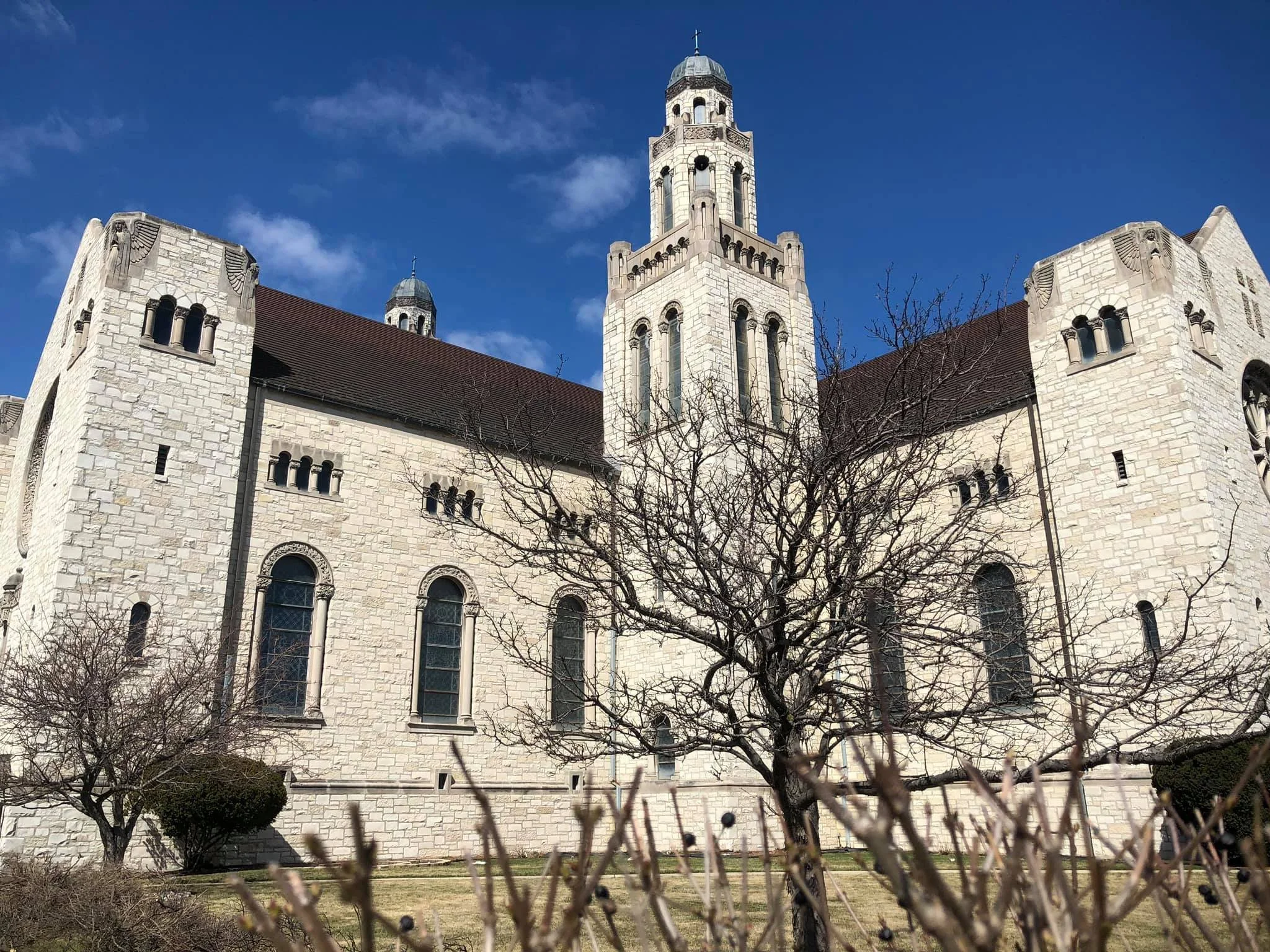Putting Community in Action
Fr. Homero Receives the Gifts of Bread and Wine during a Mass in Solidarity with our Immigrant Brothers and Sisters. Photo Courtesy of Chicago Catholic by Karen Callaway.
Reflecting on United States Immigration Policy through the lens of the Jubilee Year of Hope
Written by Erin Judd
St. Rita of Cascia Parish offered a Sunday mass in “solidarity with our immigrant brothers and sisters” in January. This mass, celebrated by Fr. Homero Sánchez, was in collaboration with the Archdiocese of Chicago’s organization, Priests for Justice for Immigrants. Priests for Justice for Immigrants is a Chicago-based coalition of priests and ministers who are committed to justice and peace for international migrants living in the United States.
In addition to Fr. Homero, several concelebrants from the Archdiocese of Chicago joined in prayer for this vulnerable population. The recognition took place on January 19, during a regularly scheduled 12 p.m. mass.
Fr. Homero oversees both St. Rita and St. Clare parishes, with around 2,700 parishioners, 90% of whom are immigrants.
Since the inauguration of the new presidential administration on January 20, newly enacted policies have impacted the lives of immigrants throughout the United States. While some argue that the policies are for the sake of national security, these immigrants find their sense of normalcy and security disrupted.
One major concern is the authorization of immigration authorities to arrest people in schools, hospitals, and churches. This includes both undocumented immigrants and over a million legal immigrants who were admitted to the United States under the Biden administration, according to a recent NPR article.
Pope Francis has declared 2025 as the Jubilee Year of Hope, but how do we reconcile our Catholic faith with the jeopardization of human dignity and social justice?
St. Rita of Cascia Church
We look to Christ and the Bible for hope: Jesus taught us to be kind to all strangers. In the Bible, Deuteronomy 10:19 states “You shall also love the stranger, for you were strangers in the land of Egypt.” We are called to have acceptance and kindness for all.
In response to the executive orders from the new administration, Archbishop Timothy P. Broglio, president of the U.S. Conference of Catholic Bishops (USCCB) issued a statement with the hope that the leadership will “reconsider those action which disregard not only the human dignity of a few, but of us all.”
The Catholic Church does not align with any political party in the United States, because the longstanding teachings of the church do not change between administrations. Christ teaches us to advocate for human dignity, a universal principle that transcends politics.
In Broglio’s statement, he asserts that the orders surrounding immigration “are deeply troubling and will have negative consequences, many of which will harm the most vulnerable among us.” The challenge lies in how to show our care for our community.
Efforts like the mass at St. Rita of Cascia are important to reflect together in prayer on the current events which impact us all. We can also use our voices as the privileged in society to speak up for the voiceless.
Bishop Mark J. Seitz of El Paso, chairman of the USCCB’s Committee on Migration, issued a statement in addition to Broglio’s, using his voice in service of this at-risk community. Seitz expressed the Catholic Church’s commitment to defending human dignity “regardless of nationality or immigration status,” further stating that “preventing any access to asylum and other protections will only endanger those who are most vulnerable and deserving of relief.”
Seita urges us to “accompany our immigrant brothers and sisters in accordance with the Gospel of Life.” We must show in our actions the love of Christ for all of God’s children.
God created each of us in His own image, and our namesake, St. Augustine, teaches this as the base of human dignity. It is our responsibility as followers of Christ to carry out this principle in our daily lives.
As Broglio says, “the just Judge expects nothing less.”
“You shall also love the stranger, for you were strangers in the land of Egypt.”
Deuteronomy 10:19



